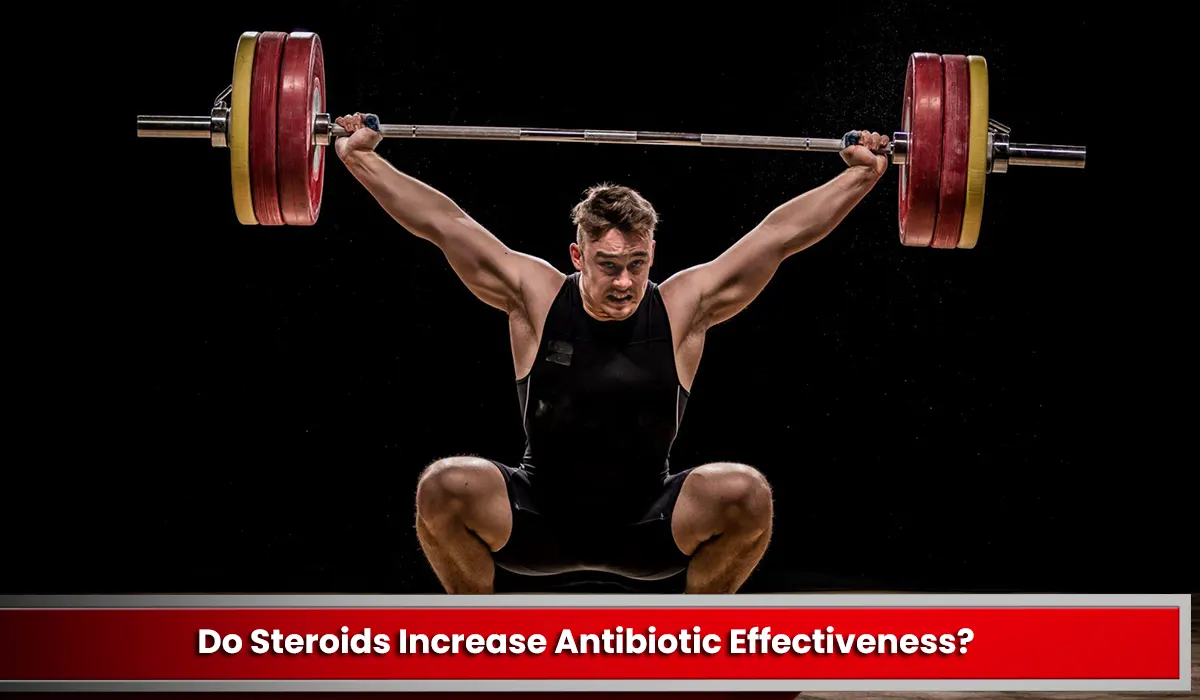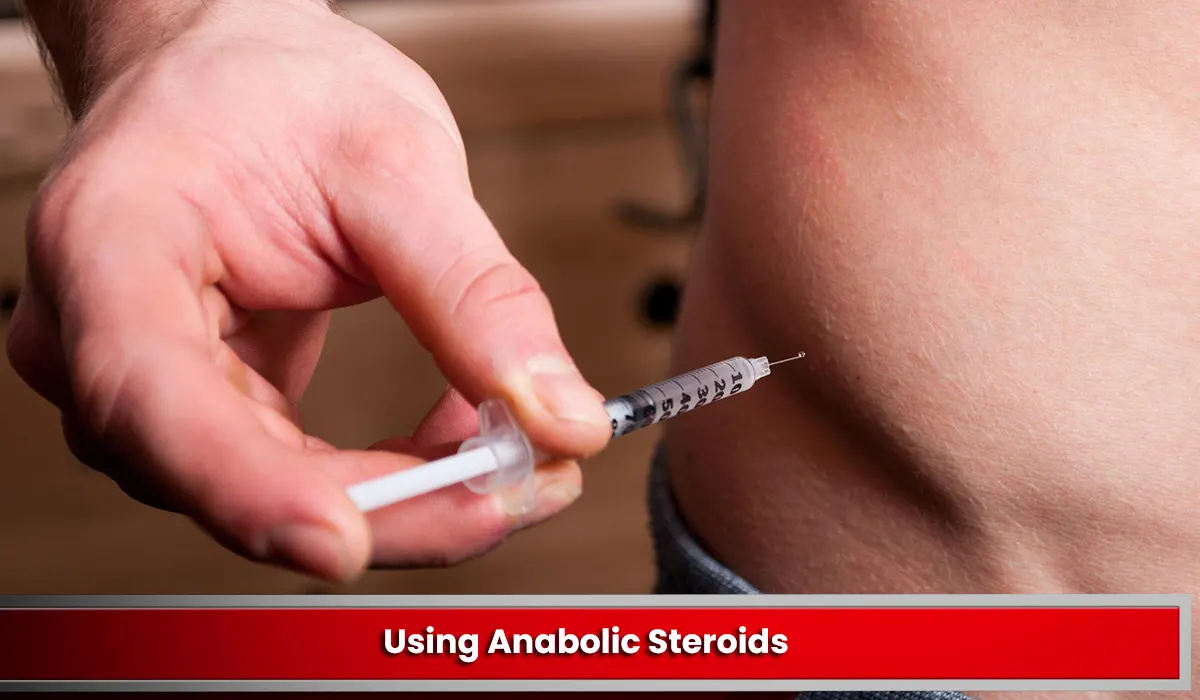If you have rheumatoid arthritis (RA), you’re probably on or have been on a steroid. Steroids, in modest dosages, can help relieve RA joint pain. Doctors may also prescribe a short-term course of a steroid, such as prednisone, to help you get through a particularly difficult RA flare-up.
When taking a steroid, however, you must exercise caution when combining it with other medications, such as antibiotics. Many individuals ask if it is safe to combine antibiotics and steroids. Can the steroid improve the antibiotic’s efficacy? We asked top medical experts to clear the air about combining steroids and antibiotics.
What are Steroids?
Steroids are certain types of hormones that can be produced naturally by the human body or chemically synthesized and administered into the system. Steroids are so-called because they have a chemical structure that is derived directly from cholesterol, which is found in both plants and animals.
Steroids were first made available in the early 1950s. Two researchers, John Ziegler and C.J. Koch investigated the impact of testosterone on sports performance. They ended up introducing a tweaked variant of the drug because it had no negative effects in the human body during studies on osteoporosis sufferers. The modified chemical was marketed as “Deca-Durabolin,” however it is now recognized as nandrolone.
In the late 1960s, a doctor in the United States named Francis Ziegler experimented with a steroid called testosterone propionate extracted from sheep testicles and successfully developed a new medication that was later marketed under the brand name “Depo-Testosterone.” This was the first time that medication was directly derived from an anabolic steroid.
Steroids are commonly given orally, either as pills or as a liquid mixture. Most people choose to take them in pill form because they are easier to ingest and transport during workouts. Anabolic steroids intended for injection require medical care, just like any other medication injected into the body, however they can be administered at trenbolone side effects home without the direct supervision of a medical practitioner.
How steroids work inside the human body
The way steroids function inside the human body varies depending on which steroids are used, what purpose the steroid serves, and the individual’s physiological state. However, the most common method steroids operate is by attaching to androgen receptors present in skeletal muscle cells. This would boost protein synthesis within those cells, resulting in increased muscular mass.
Because it directly reaches target tissues where many changes occur, the effects of this steroid on the body can be seen as early as a few of weeks. After only a few weeks or months, a person will be able to see the benefits of taking steroids.
Steroids are typically taken orally, injected into muscles, or given to the skin in the form of a gel, depending on how they are intended to be used. Anabolic steroids take 7 to 8 hours to reach their highest concentration in the blood when taken orally. Injectable steroids, on the other hand, can be detected in high amounts just a few minutes after injection since they reach the bloodstream directly.
Difference Between Steroids and Antibiotics

Steroids (also known as corticosteroids) are drugs that reduce inflammation in the body. They are frequently prescribed by doctors to alleviate joint inflammation and edema caused by RA. Steroids are also used to treat allergic responses, asthma, and to quiet an overactive immune system in persons with autoimmune illnesses like lupus and RA, where the immune system erroneously targets healthy tissue. Prednisone, methylprednisolone, dexamethasone, and cortisone are examples of common oral corticosteroids.
Antibiotics act in a unique way. “Antibiotics have an antibacterial effect—they target bacteria when you have an infection,” says Alia Aaeedy, director of pharmacy at Texas Surgical Hospital in Plano, TX. You might take an antibiotic to treat an infection like strep throat, an ear infection, or a sinus infection, for example. An antibiotic, however, does not help fight viruses such as the common cold, the flu, or COVID-19 since it kills bacteria.
Antibiotics are classified into many different classes and varieties; consult your doctor to determine which one is best for you.
Can You Take Steroids and Antibiotics at the Same Time?
The answer depends on the individual steroid, antibiotic, and infection—but sure, your doctor may prescribe both medicines at the same time in some circumstances. The antibiotic kills bacteria, while the steroid reduces inflammation and pain. According to a study published in The New England Journal of Medicine, the steroid dexamethasone has been shown to be helpful in adults with bacterial meningitis. For certain infections, the two are frequently recommended simultaneously.
Drug Interactions Between Steroids and Antibiotics
However, there are certain potential interactions to be aware of if you are avoiding powerlifting injuries taking both oral steroids and antibiotics. Here are some common ones to be aware of. If you are unsure about drug interactions or have follow-up inquiries, always consult your provider.
Dexamethasone and Antibiotics
Dexamethasone, a kind of steroid, and certain antibiotics may have an interaction. “The antibiotic levofloxacin [part of the quinolone class of medications] and dexamethasone should not be administered combined due to an increased risk of tendon rupture,” Madison explains. Erythromycin, an antibiotic, can increase the quantity of dexamethasone in your system, raising your risk of side effects.
Prednisone and Antibiotics
All corticosteroids, including prednisone, have the potential to combine with quinolone antibiotics (levofloxacin, ciprofloxacin) and tear a tendon (tissue connecting muscle to bone). Madison believes that combining prednisone and penicillin medicines such as amoxicillin is safe.
Can You Drink Alcohol While on Antibiotics or Steroids?
It’s not because a glass of wine or a beer will make the antibiotics less effective that doctors advise patients not to drink while taking medication. While taking certain drugs, alcohol can raise your chance of negative effects. Certain antibiotics, such as Flagyl (metronidazole), Tindamax (tinidazole), and Bactrim, should be avoided while using alcohol (sulfamethoxazole). The combination might cause nausea, vomiting, a fast heart rate, and headaches.
Although there are no known interactions between alcohol and steroids such as prednisone, excessive drinking may increase your side effects, including an upset stomach. “You may experience heartburn, acid reflux, or gas,” Aaeedy warns. To be safe, avoid drinking or, at the very least, limit your intake while using oral steroids.
Side Effects of Steroids and Antibiotics
Side effects are a danger with any drug, and steroids and antibiotics are no exception. However, when these two medications are taken, the gastrointestinal side effects can be exacerbated. “The majority of side effects are connected to GI toxicity,” Madison explains. Antibiotics, for example, commonly cause nausea, diarrhea, and stomach distress. Corticosteroids, which irritate the stomach lining, can also cause nausea and cramps. To summarize, combining antibiotics and steroids clenbuterol australia suppliers may raise the likelihood of stomach problems.
Why Doctors Prescribe Steroids With Antibiotics
When you are ill, your doctor may prescribe an oral steroid as well as an antibiotic. This is intended to hasten your recovery. “The steroid reduces the swelling and inflammation caused by an infection, such as swelling in the sinus area in the case of a sinus infection,” adds Aaeedy.
Do Steroids Increase Antibiotic Effectiveness?

According to several studies, the two drugs work better together than either alone in treating specific infections. A recent research, for example, discovered that corticosteroids and antibiotics worked better together to treat bacterial meningitis. In animal studies, taking steroids and antibiotics simultaneously improved recovery time for those with pneumonia. To be clear, researchers do not believe steroids make antibiotics more effective, but they do believe that by lowering inflammation, the infection would cure faster.
To summarize, it is safe to combine most antibiotics with steroids—and the combination may even help you recover faster from infection.
